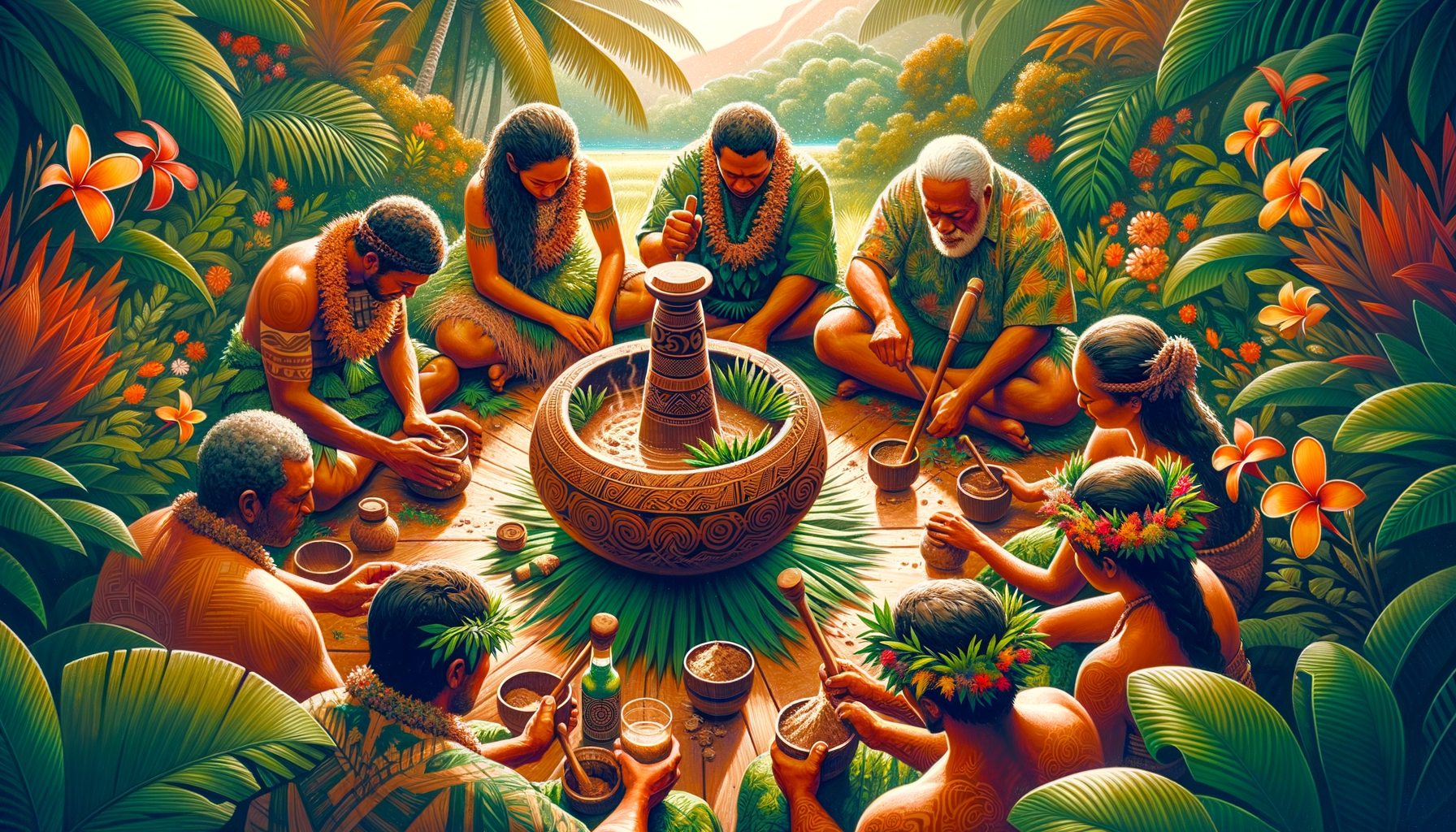Introduction to Traditional Kava
Hey, kava lovers! Welcome to KavaKist, your go-to place for all things kava. We want to make kava known in every home worldwide. To really enjoy traditional kava, it’s important to know its cultural roots and benefits. Today, we’re exploring the traditional side of kava, a drink loved for centuries. We’ll also hear from Matt Warren, a co-founder of Psychedelic Water, who loves kava.
The Origins of Traditional Kava
What is Traditional Kava?
So, what is traditional kava? Scientifically, it’s called Piper methysticum. This plant comes from the South Pacific islands like Fiji, Tonga, Vanuatu, and Hawaii. Kava is famous for its calming effects, making it popular in many cultures, both old and new.
Historical Significance of Traditional Kava
Traditional kava has been important in South Pacific cultures for a long time. It’s used in weddings, peace talks, and many other events. Stories and legends about kava have been passed down through generations. One legend speaks of a Tongan chief who gained wisdom through kava ceremonies.
Traditional Kava Preparation
The Plant and Its Parts
Not all parts of the kava plant are the same. The roots have kavalactones, which give kava its effects. There are different types of kava: Noble kava, which is balanced and commonly used, and Tudei kava, which is much stronger and used less often.
Traditional Kava Preparation Methods
Preparing traditional kava is a detailed process. First, the roots are harvested, dried, and ground into fine powder. This powder is mixed with water and kneaded to release the kavalactones. The liquid is then strained, usually with a cloth, into a Tanoa, a ceremonial kava bowl. Matt Warren remembers his first time: "It felt like going back in time. Watching the community prepare kava was amazing. It’s not just a drink; it’s a ritual that brings people together."
Cultural Rituals and Practices Involving Traditional Kava
Ceremonial Importance of Traditional Kava
Kava ceremonies are deeply rooted in Pacific cultures, symbolizing respect, unity, and peace. In these ceremonies, there are different roles like the mixer, who prepares the kava, and the server, who gives it to the participants. The kava circle is where stories are shared, wisdom is given, and bonds are formed.
Community and Social Aspects of Traditional Kava
Traditional kava is more than just a drink; it helps build community and encourages conversations. Matt remembers a ceremony in Fiji: "I felt an instant connection with everyone. The atmosphere was welcoming, and by the end of the night, we were like family."
Modern-Day Adaptations of Traditional Kava
Kava in Today’s World
Traditional kava has influenced modern ways of enjoying it. Today, kava comes in powders, capsules, and ready-to-drink forms. These new forms make it easier to enjoy kava while respecting its roots.
Maintaining Traditional Kava Practices
Despite modern changes, many kava fans keep traditional practices. If you want to try traditional kava at home, get high-quality kava root. Use a strainer bag and a large bowl to knead and strain the kava, just like in the South Pacific.
Benefits of Traditional Kava
Health and Wellness Benefits of Traditional Kava
Traditional kava has many health benefits. It’s known for relieving stress and helping relaxation. Drinking it regularly can improve social interactions and mental well-being.
User Experiences with Traditional Kava
Many people love these benefits. "Since I started drinking kava, I’ve had less stress and felt happier," says Matt. "It’s not just about relaxing; it’s about community and clear thinking."
Conclusion
Traditional kava is more than just a drink; it’s a cultural treasure with calming effects. By embracing traditional practices, you experience more than a beverage—you connect with a long-standing legacy. Ready to start? Visit KavaKist for tips and products to begin your kava journey!
Additional Resources
- Educational Articles on Kava
- Recommended Kava Products
- Upcoming Events and Meetups
By embracing the traditions and culture of traditional kava, we can connect deeply with this amazing plant and those who have loved it for centuries. Join us at KavaKist!

Leave a Reply